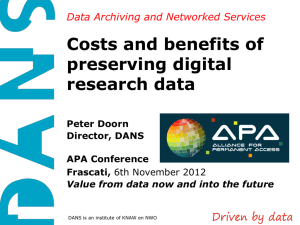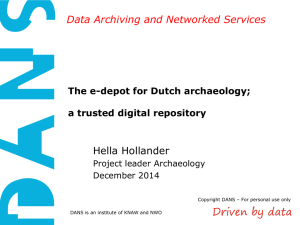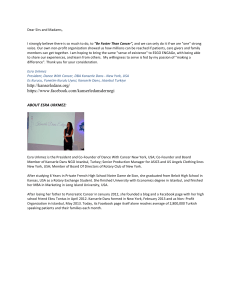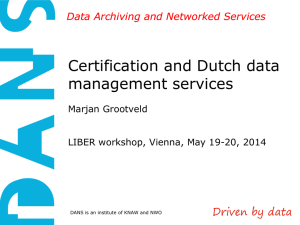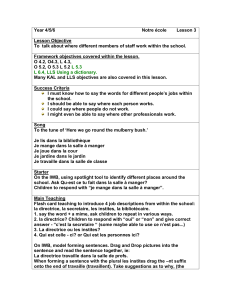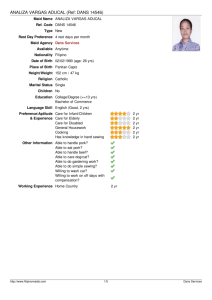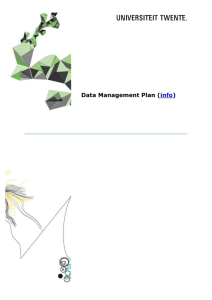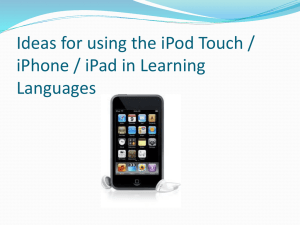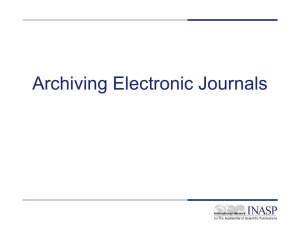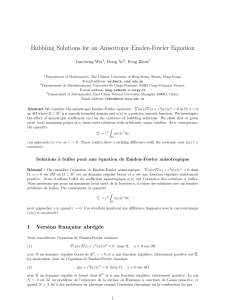DANS and data management in the Netherlands, Ingrid Dillo
advertisement
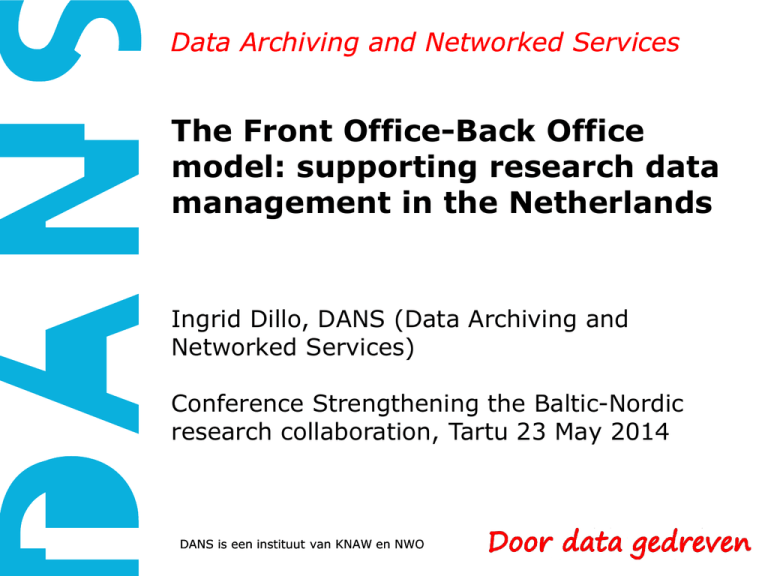
Data Archiving and Networked Services The Front Office-Back Office model: supporting research data management in the Netherlands Ingrid Dillo, DANS (Data Archiving and Networked Services) Conference Strengthening the Baltic-Nordic research collaboration, Tartu 23 May 2014 DANS is een instituut van KNAW en NWO The Dutch case as best practice? What is DANS? Institute of the Royal Netherlands Academy and Research Funding Organisation (KNAW & NWO) since 2005 Mission: promote and provide permanent access to digital research information First predecessor dates back to 1964 (Steinmetz Foundation), Historical Data Archive 1989 DANS services EASY: Electronic Archiving System Data Seal of Approval Dutch Dataverse Network NARCIS: Gateway to scholarly information In the Netherlands ‘Who’ is DANS? About 50 employees: IT-specialists, archivists, information experts, policy makers and communication advisors Data is hot! • Riding the Wave report: critical importance of sharing and preserving reliable data produced during the scientific process • Executive Order President Obama: Making Open and Machine Readable the New Default for Government Information (data) • EU Commissioner Neelie Kroes: “Data is the new gold” Proliferation of data Trend of data sharing/open data policies; recognition of the value of data; funder requirements Advantages: • Transparency and replication of research • Re-use of data Challenges: • data management • preservation and access RDM: research data life cycle RDM: what to address in a DMP? Metadata + documentation to be delivered File formats Confidentiality / Ethics Rights Version control Interoperability Costs Data management approach Storage + archiving Preservation and access • Local storage facilities during the research • Network of trusted digital repositories for long-term preservation after the research is finished • Certification of TDRs in order to establish trust The federated data infrastructure: a collaborative framework Data Generators Data Users Data Curation Trust Front offices: • Local Data Facilities (University Libraries) • Domain-Specific Research Infrastructures Back Offices: DANS, 3TU.Datacentrum, … Basic Technical Infrastructure: SURFsara, Target, … User functions: data capture and transfer Community Support Services Common Data Services: Archiving, Access, … Common Data Services: Storage, Backups, … FO-BO Institutions • Front offices – Universities (libraries, local data centers) – Disciplinary research infrastructures (ESFRI/NL-National Roadmap) • Back offices – DANS (humanities, social sciences) – 3TU.Datacentrum (technical sciences) – …SURFsara (big data) -> Trusted digital repositories! Data Archiving and Networked Services DANS is an institute of KNAW en NWO Services in the model • Information and awareness raising • Training (data librarians and researchers) • Storage (during and after the research) Roles and responsibilities: the Front Office • Focus on information and awareness raising: – Information portal research community – Awareness raising, support and training research community – Supporting VREs (research tools, data storage during research; Sharepoint, Dataverse, etc.; transfer for long-term archiving in trusted digital repository) – Liaising with back office – Data acquisition Roles and responsibilities: the Back Office • Focus on expertise and long term storage: • Expertise and innovation in the area of permanent storage, data management and re-use of data – Providing expertise to the research community: training courses – Providing expertise to the front office: training courses for data experts, consultancy, contact persons – Long term preservation of data in a trusted digital repository Research Data Netherlands • BO collaboration in order to serve the FO better and more efficient • Existing collaboration DANS-3TU.Datacentrum (training data experts, Dutch Dataprize) • Expanding areas of collaboration • Open to other trusted digital repositories Future challenges •Expanding the model over all universities (institutional agreements) •Developing a business model to cover the costs •Creating one single back office “desk” (RDNL) •Creating a technical infrastructure for automatic data ingest Thank you for your attention! ingrid.dillo@dans.knaw.nl www.dans.knaw.nl http://www.researchdata.nl/ 5 minute video: The what, why and how of data management planning https://www.youtube.com/watch?v=gYDbGP1CA4
